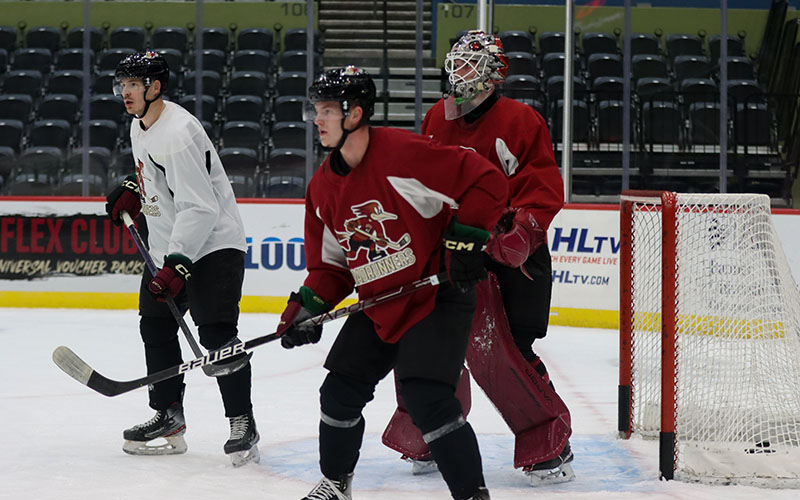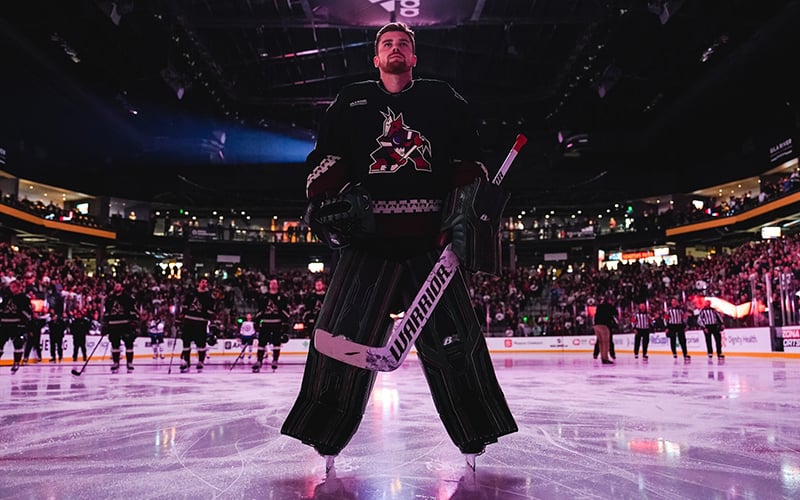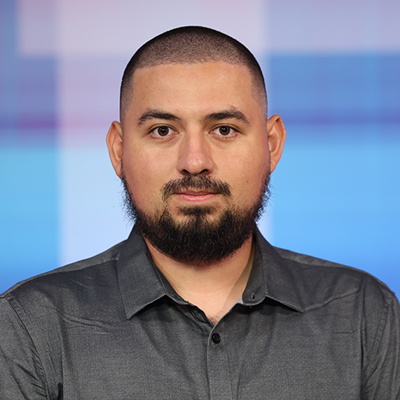TUCSON – The sound of skates slashing over ice. The crash of bodies slamming into boards around a rink. The crack of a slap shot.
They’re familiar sounds in places like Montreal, Minneapolis, Toronto or Chicago. But this time, they were in Tucson, a desert city better known for the pounding of basketballs than the sounds of hockey players rattling the glass.
The sounds of hockey were present at the practice of the Tucson Roadrunners, the Arizona Coyotes minor league affiliate that’s carving out its own space since relocating to town in 2016.
“You could hear the buzz in the air,” Tucson Roadrunners coach Steve Potvin said. “There’s a lot of energy in this city.”
A basketball city at heart, Tucson has embraced the Roadrunners in their efforts to create a strong hockey culture while expanding the reach of the hometown Coyotes located over 100 miles away.
With only a few ice rinks in all of Tempe, a professional hockey team located in the city is a strange sight. But Tucson’s deep basketball roots have not stopped members of the Roadrunners organization from efforts to grow hockey to unexpected heights.
“It’s a unique opportunity when you’re in a market that isn’t traditional to hockey in terms of the population that lives there,” Roadrunners strength and conditioning coach Parker Poore said.
“I think we have done a good job spreading the word about hockey and getting people involved. We have had a lot of exposure and I think you need to have that because hockey can be a weird sport to approach unless you know what is really going on with it. So to give people a chance to experience and see what it is all about, really helps grow it and they have done a really good job of that.”
Attendance numbers for Roadrunners games last season at Tucson Convention Center (3,564) are a fraction of University of Arizona basketball games at the 14,655-seat Mckale Memorial Center. However, Tucson is less focused on numbers and more concerned with creating an entertaining environment for fans.
So far this season, it’s working. Average attendance is up to 4,086.
“I think that it gives families and children a fun and safe place to go,” Tucson resident Kaylea Rayleigh said. “I think it’s had a huge impact on how active the players have been in the community. It’s been a great addition to our town for both adults and children.”
Taking a unique approach has helped the Roadrunners navigate the challenges of playing in a smaller hockey market. The Roadrunners plan theme nights, including Military Appreciation Night, Kids-Free Wednesday, College Night and Faith and Family Night.
The Roadrunners are not only looking to build a strong hockey culture in the city of Tucson but a stable foundation for the entire Coyotes organization.
“Buying into the culture down here also means buying into the culture up top,” Potvin said. “That is important to us.”
Starting at the top, the Roadrunners’ management and coaching staff is tasked with making sure the next generation of young players in the Coyotes system are ready to jump to the NHL when necessary.
The Roadrunners entered a new era after the hiring of John Ferguson as general manager in September of 2021. Ferguson has experience as a former NHL player and in the front over as the former Toronto Maple Leafs general manager from 2003 to 2008.
One of Ferguson’s first orders of business was to promote Potvin as coach of the Roadrunners after he served as an assistant coach since 2017.
Now Potvin has the opportunity to create a new identity for the team.
“I think right now we are at our peak,” said Roadrunners goalie Ivan Prosvetov. “We have a good coaching group here. I think the whole organization is in a rebuild right now and we are moving in the right direction. I think that management knows what they are doing. It shows the whole organization is growing.”
Potvin has always preached growth and wants to make sure his team is built of players that will put everything on the line to help the team succeed.
“Culture is a word that gets thrown out there quite a bit, but culture is literally what we value most,” Potvin said. “So we value high-character players, and we value players that like to compete, and we value guys that are going to be part of a brotherhood and build relationships internally. We want a team that is more than just a hockey team. They’re facing more than just opposition. That, to me, is what we’re looking for and that’s what we’re trying to build.”
As part of Potvin’s “culture,” the Roadrunners embrace a friendly competition mentality. While they seem to have fun with each other on the ice, there is a level of chippy and physical playing style that is seldom seen.
“We are all brothers,” Roadrunners forward Ben McCartney said. “We are all really close with each other and we really enjoy playing together. Obviously there is going to be a little chippy play in practice, but that is because we care about each other and are trying to push each other every day. I think that is a good way to be as a team.”
They may seem like two completely separate teams playing two different sports with two varying levels of interest in the same city, but the Roadrunners and the Wildcats have the same goal in mind: winning over the city.



